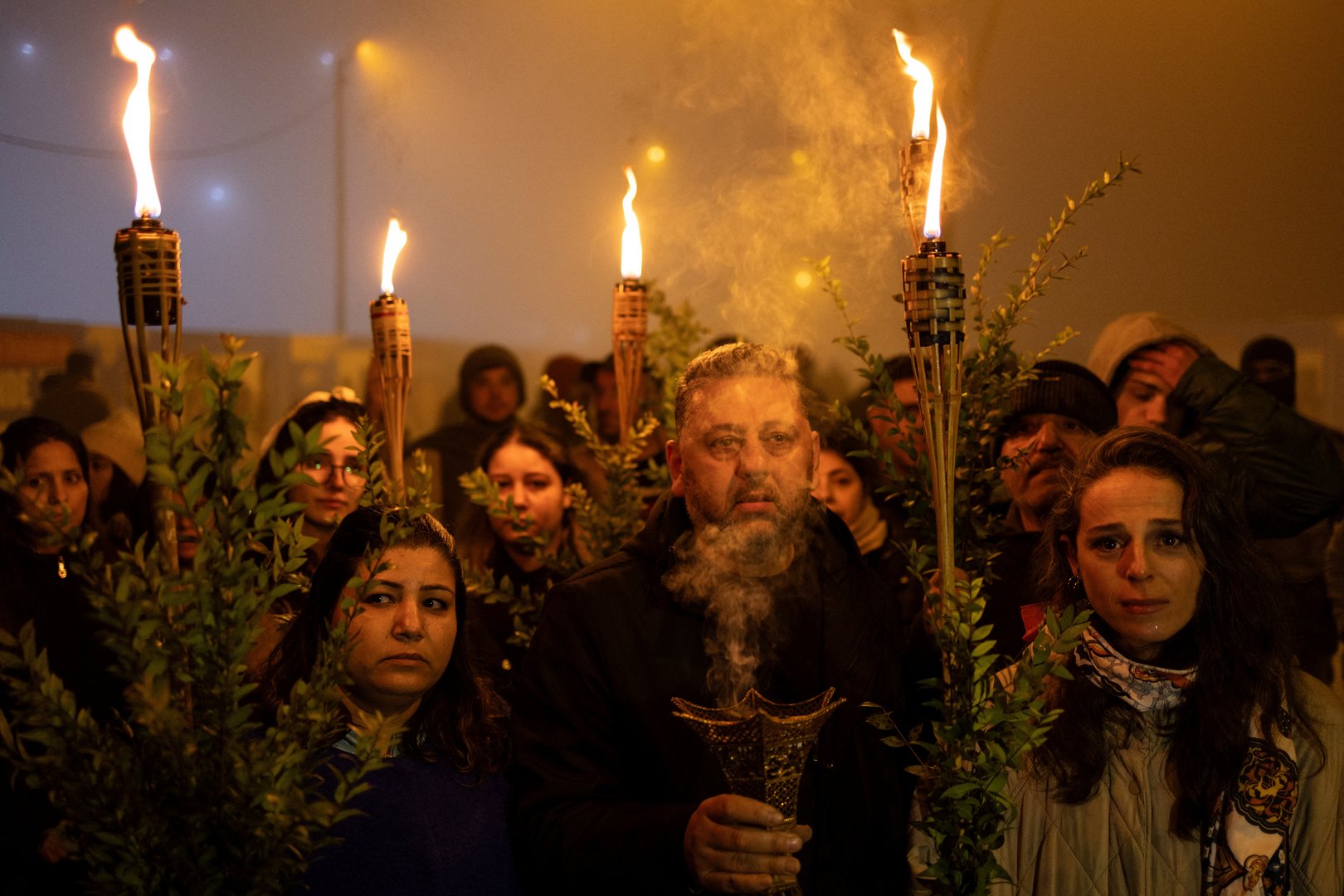More than 10,000 people gathered early on Tuesday to hold a vigil for the one-year anniversary of the devastating earthquakes that hit southeastern Turkey, as some protested what they called government negligence in the aftermath.
The magnitude 7.8 tremor, the deadliest disaster in Turkey’s modern history, levelled towns and parts of cities in the country’s southeast and neighbouring Syria. It killed more than 50,000 people in Turkey, some 5,900 in Syria, and left millions homeless.
In the southeastern Turkish province of Hatay, the country’s worst-hit, people called for the government and local authorities to resign during the vigil, and demanded that officials do not present themselves at the memorial, while booing speeches.
In the main square of the city of Hatay, located in the province, some chanted, “Can anybody hear my voice?” as Health Minister Fahrettin Koca spoke, a slogan referring to calls heard from under the rubble as people waited for days for help to arrive. Residents say many people died not because of the buildings collapsing, but rather from waiting for so long trapped in the rubble in the cold.
After the vigil, people tossed flowers into the Asi River, which runs through the city.
Merve Gursel, who lost her aunt, her aunt’s husband and her cousins in the earthquake, called out their names as she tossed a carnation into the water for each one.
“Nobody was with these people that day. These people’s pain is that they could not be rescued. These people’s pain is that they could not have their voices heard,” she said.
“This (the protests) is the echo of people’s inner pain. It is an echo of how much people have suffered. There is no way to describe how to make up for the pain here. Those people’s hearts are bleeding.”
Nesibe Duzgun said she was tossing flowers in the water for everyone she knew and that the move unified the people of Hatay.
President Tayyip Erdogan said in a statement on social media site X that the pain of the loss from the earthquakes was as fresh now as it was a year ago, and his government had moved in the immediate aftermath of what they call “the disaster of the century”.
“The unity of the century was displayed in the face of the disaster of the century,” he said.
However, Nurul Sabah Aksu, a Hatay resident, said the government had abandoned the people of the city to die.
“Thousands of people died here. Where were they? Why did they leave Hatay like this? Why did they forget about us?” Aksu asked.







Click here to change your cookie preferences